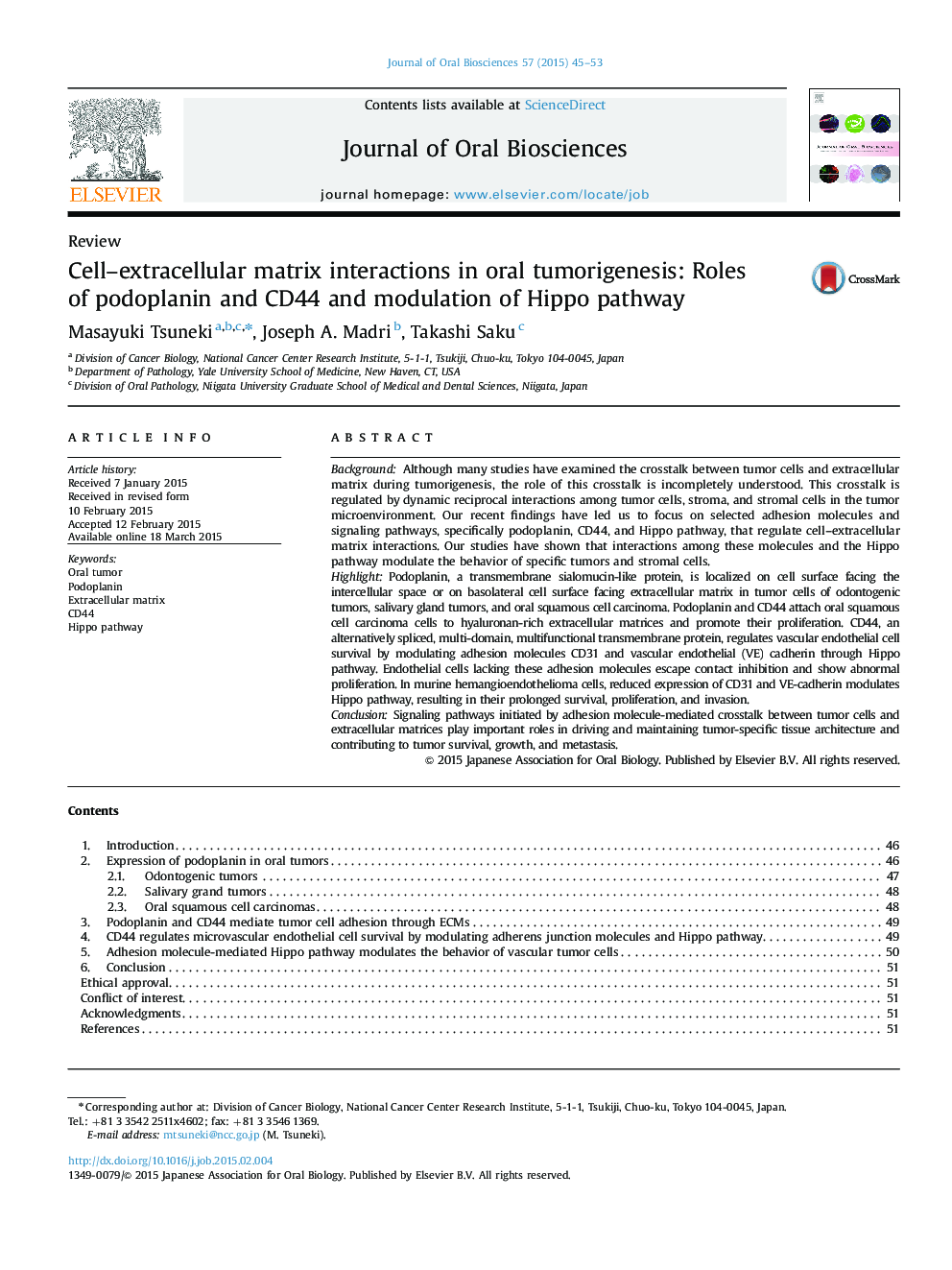| کد مقاله | کد نشریه | سال انتشار | مقاله انگلیسی | نسخه تمام متن |
|---|---|---|---|---|
| 2776794 | 1152636 | 2015 | 9 صفحه PDF | دانلود رایگان |

BackgroundAlthough many studies have examined the crosstalk between tumor cells and extracellular matrix during tumorigenesis, the role of this crosstalk is incompletely understood. This crosstalk is regulated by dynamic reciprocal interactions among tumor cells, stroma, and stromal cells in the tumor microenvironment. Our recent findings have led us to focus on selected adhesion molecules and signaling pathways, specifically podoplanin, CD44, and Hippo pathway, that regulate cell–extracellular matrix interactions. Our studies have shown that interactions among these molecules and the Hippo pathway modulate the behavior of specific tumors and stromal cells.HighlightPodoplanin, a transmembrane sialomucin-like protein, is localized on cell surface facing the intercellular space or on basolateral cell surface facing extracellular matrix in tumor cells of odontogenic tumors, salivary gland tumors, and oral squamous cell carcinoma. Podoplanin and CD44 attach oral squamous cell carcinoma cells to hyaluronan-rich extracellular matrices and promote their proliferation. CD44, an alternatively spliced, multi-domain, multifunctional transmembrane protein, regulates vascular endothelial cell survival by modulating adhesion molecules CD31 and vascular endothelial (VE) cadherin through Hippo pathway. Endothelial cells lacking these adhesion molecules escape contact inhibition and show abnormal proliferation. In murine hemangioendothelioma cells, reduced expression of CD31 and VE-cadherin modulates Hippo pathway, resulting in their prolonged survival, proliferation, and invasion.ConclusionSignaling pathways initiated by adhesion molecule-mediated crosstalk between tumor cells and extracellular matrices play important roles in driving and maintaining tumor-specific tissue architecture and contributing to tumor survival, growth, and metastasis.
Journal: Journal of Oral Biosciences - Volume 57, Issue 2, May 2015, Pages 45–53